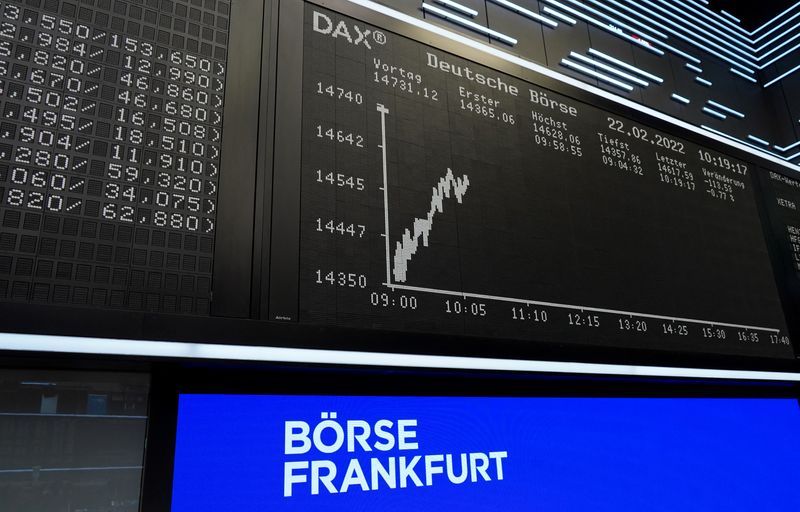By Geoffrey Smith
Investing.com -- Outflows from European stocks this year are now bigger, in relative terms, than they were in the first stage of the pandemic in 2020, but it still looks too early to bet on a turnaround.
That's the view of Citigroup strategists, who warned in a note to clients that markets usually have to find a bottom first before a swing back to net inflows can happen.
Investors have been net sellers of European stocks ever since Russia's invasion of Ukraine in February, and the streak doesn't look like ending yet: national markets are down as much as 14% in the last month alone as central banks have jacked up interest rates and Ukrainian victories on the battlefield have prompted the Kremlin to escalate the war by mobilizing reserves, annexing occupied territory and - seemingly - blowing up undersea gas pipelines.
In an analysis of EPFR data, Citi's analyst team led by David Groman said outflows from cumulative institutional funds are now at 6% of total assets under management. That compares with outflows of only 3% in the eight months following the outbreak of Covid-19 in 2020. In historical terms, it's more on a par with another Europe-specific episode - the Eurozone debt crisis of 2011-12, where outflows ran to 7% of AUM before reversing.
In the process, the traditional valuation gap between U.S. and European stocks has widened to a level usually seen only at times of extreme stress. Over the last 16 years, the analysts noted, the gap between the MSCI Europe and MSCI US forward earnings multiple has averaged three. But today that gap is five, as Europe trades at 11 times expected forward earnings while the U.S. trades at 16 times.
Analysts at Goldman Sachs argued earlier in the week that, rather than signaling a buying opportunity, that multiple reflects the fact that European analysts have been too slow to revise down their earnings forecasts in the face of a recession that is now widely seen as inevitable.
Groman and co. pointed out that there is only one example in recent history where stocks haven't rebounded from here. On average, they have recovered some 16% in the 12 months following such a spell of outflows. The one exception was in 2008 - when they fell another 37%.
As of today, there is little to suggest that Europe's financial sector faces a rerun of that nightmare period, which it faced with inadequate capital and, in many cases, unprofessional and politicized leadership. However, the extreme nature of that one outlier may temper the enthusiasm of those waiting for the right moment to bite the dip.
